The gaming industry has always been a realm of endless possibilities, pushing the boundaries of imagination and technology. In recent years, a fascinating trend has emerged: the gamification of the occult. Video games and virtual reality experiences are increasingly incorporating occult practices, symbols, and themes, creating immersive worlds that blur the lines between fantasy and reality. This article is about how game developers are weaving esoteric knowledge into their digital game creations and why players are drawn to these mystical experiences. I will also explore the future of the occult, gaming, and the increasing complexity of virtual space.
The Rise of Occult-Inspired Gaming
The incorporation of esoteric and mystical elements in video games has been a longstanding practice, but in recent times, this trend has experienced a remarkable surge in popularity and sophistication. The gaming industry, from small independent studios to major publishing houses, has increasingly embraced the rich and complex world of occult traditions, weaving them into intricate storylines and innovative gameplay systems.
This shift towards more nuanced and immersive occult-themed gaming experiences represents a significant evolution in how developers approach supernatural and mystical content. The result is a new generation of games that offer players unprecedented depth and authenticity in their exploration of esoteric concepts and practices.
A Brief History
The presence of occult themes in video games can be traced back to the earliest days of the medium. However, the manner in which these elements have been portrayed and integrated into games has undergone a dramatic transformation over the years. In the early stages of video game development, occult references were often limited to superficial or stereotypical representations of magic and the supernatural. These initial depictions typically served as simple plot devices or aesthetic choices, lacking the depth and nuance found in more recent titles.
As the gaming industry has matured, so too has its approach to occult themes. Modern video games are now delving into the intricate details of various esoteric traditions, offering players a more authentic and immersive experience. This evolution reflects a broader shift in gaming culture, with developers and players alike showing increased interest in exploring complex philosophical and spiritual concepts through interactive digital mediums.
The sophistication of occult representation in contemporary games is evident in the meticulous attention to detail paid to historical accuracy, symbolic significance, and the practical applications of various mystical systems. Developers are now consulting experts in esoteric fields, conducting extensive research, and incorporating authentic rituals, symbols, and philosophies into their game design. This level of dedication has resulted in games that not only entertain but also educate players about the rich history and diverse practices associated with occult traditions.
Furthermore, the integration of occult elements has expanded beyond mere aesthetic choices or background lore. Many modern games now feature intricate magical systems as core gameplay mechanics, allowing players to engage directly with occult practices in a virtual space. These systems often require players to learn and master complex rituals, decipher cryptic symbols, and navigate multifaceted spiritual hierarchies, mirroring the depth and complexity of real-world esoteric studies.
This trend towards more sophisticated occult content in gaming reflects a broader cultural shift towards exploring alternative spiritualities and ancient wisdom traditions. As society becomes more open to discussing and exploring esoteric concepts, game developers have found a receptive audience for titles that offer deep dives into these mysterious and often misunderstood realms of human experience.
Why the Occult Appeals to Gamers
The allure of the occult in gaming stems from several factors:
- Mystery and exploration: Occult themes provide a sense of the unknown, encouraging players to uncover hidden truths and secrets.
- Power fantasy: The idea of wielding supernatural abilities is inherently appealing to many gamers.
- Rich lore: Occult traditions offer a wealth of stories, symbols, and concepts that can be woven into complex game worlds.
- Rebellion and counterculture: Embracing occult themes can be seen as a form of rebellion against mainstream narratives.
Occult Practices in Modern Games
Let’s explore some of the ways occult practices are being integrated into contemporary video games:
Ritual Magic and Spellcasting
Many games now feature intricate systems of ritual magic, where players must learn and perform specific actions to cast spells or summon entities. These systems often draw inspiration from real-world occult practices, such as ceremonial magic or Hermetic traditions.
Tarot and Divination
Tarot cards and other forms of divination are frequently used as gameplay mechanics or storytelling devices. Some games even incorporate fully functional tarot systems that players can use to gain insights or make decisions within the game world.
Alchemy and Transmutation
The ancient art of alchemy has found new life in video games. Players often engage in complex crafting systems that mirror alchemical processes, transforming base materials into powerful items or unlocking hidden knowledge.
Astral Projection and Out-of-Body Experiences
Some games explore the concept of astral projection, allowing players to separate their consciousness from their physical form and explore otherworldly realms. This mechanic often serves as a unique way to solve puzzles or uncover hidden aspects of the game world.
Notable Occult-Inspired Games
The gaming industry has seen a surge in titles that skillfully weave occult themes into their narratives and mechanics. These games have garnered attention for their innovative approaches to esoteric concepts, offering players immersive experiences that delve into the mysterious and arcane. Let’s explore some standout examples that have left an indelible mark on the gaming landscape:
The Binding of Isaac
This roguelike dungeon crawler has captivated players with its intricate web of occult symbolism and religious imagery. The game plunges players into a nightmarish underworld, where they must navigate treacherous chambers filled with grotesque creatures and cryptic artifacts. Each playthrough unveils new layers of meaning, with items and enemies serving as metaphors for deeper spiritual and psychological concepts.
The game’s procedurally generated levels ensure that no two journeys are alike, mirroring the unpredictable nature of esoteric exploration. Players must decipher cryptic symbols, make sacrificial choices, and confront their own inner demons as they progress. The Binding of Isaac’s unique blend of dark humor and profound symbolism has sparked countless discussions and interpretations within the gaming community.
Eternal Darkness: Sanity’s Requiem
This psychological horror masterpiece is a testimony to the power of occult themes in gaming. Set across various historical periods, the game weaves a complex narrative that draws heavily from Lovecraftian lore and ancient mysticism. Its groundbreaking “sanity meter” mechanic blurs the lines between reality and madness, creating a truly unsettling experience for players.
As characters delve deeper into forbidden knowledge, they risk losing their grip on reality. The game manipulates not only the in-game world but also breaks the fourth wall, affecting the player’s perception of their own gaming environment. This innovative approach to psychological horror has left a lasting impact on the genre, inspiring countless imitators and discussions about the nature of reality and perception.
The Dark Souls Series
While not overtly focused on the occult, the Dark Souls series has become renowned for its rich weaving of alchemical symbolism and esoteric themes. These challenging action RPGs immerse players in a world of decay and rebirth, where cycles of light and dark shape the fate of kingdoms.
The games are rife with imagery and concepts drawn from various mystical traditions. Players encounter cryptic NPCs, decipher obscure item descriptions, and piece together a fragmented lore that hints at deeper truths. The series’ emphasis on the union of opposing forces – life and death, light and dark, fire and shadow – resonates strongly with alchemical principles of transformation and balance.
Moreover, the game’s unique approach to online multiplayer, where players can leave messages and briefly appear in each other’s worlds, creates a sense of shared mystical experience. This community-driven aspect of uncovering the game’s secrets mirrors the initiatory nature of many occult traditions.
Control
This action-adventure title thrusts players into a world where the veil between ordinary reality and the paranormal has been torn asunder. Set in a shapeshifting brutalist building known as the Oldest House, Control draws inspiration from various esoteric traditions, conspiracy theories, and the concept of consensus reality.
Players take on the role of Jesse Faden, who must navigate this strange environment while wielding supernatural abilities and altered items – ordinary objects imbued with paranatural powers. The game’s narrative delves into themes of hidden knowledge, secret societies, and the nature of reality itself.
Control’s unique visual style, blending stark modernist architecture with mind-bending impossible geometries, creates an atmosphere of constant unease and wonder. The game’s exploration of how belief shapes reality and the power of symbols and rituals in affecting the world around us resonates strongly with many occult concepts.
Virtual Reality and the Occult Experience
The advent of virtual reality technology has opened up unprecedented possibilities for immersive occult experiences. This merging of ancient practices with cutting-edge technology is creating new avenues for spiritual exploration and magical practice:
Ritual Spaces in VR
Virtual reality applications are now offering users the ability to create and inhabit personalized ritual spaces. These digital sanctuaries can be customized down to the smallest detail, allowing practitioners to craft environments that resonate with their specific magical traditions.
Users can design intricate altars, arrange sacred geometries, and populate their spaces with three-dimensional representations of magical tools and symbols. The ability to manipulate light, sound, and even simulated elemental forces adds depth to these virtual temples. Some applications even allow for shared ritual spaces, enabling group workings across vast physical distances.
Guided Meditations and Astral Travel
VR meditation apps have begun incorporating occult-inspired visualizations and guided journeys, offering users the chance to explore astral realms and connect with spiritual entities in ways previously confined to the imagination. These experiences range from guided pathworkings through the Kabbalistic Tree of Life to simulated out-of-body experiences.
Advanced haptic feedback and biometric monitoring can enhance these journeys, allowing the software to respond to the user’s physiological state. Some applications are experimenting with procedurally generated astral landscapes that evolve based on the user’s subconscious responses, creating truly unique and personalized spiritual experiences.
Virtual Grimoires and Spell Books
Interactive VR grimoires are emerging as powerful tools for occult study and practice. These digital tomes go beyond simple text and images, offering fully immersive learning experiences. Users can manipulate three-dimensional models of magical seals, practice drawing sigils in the air, and even simulate the casting of complex rituals.
Some virtual grimoires incorporate AI assistants that can answer questions and provide context for complex magical concepts. Others feature progressive learning systems that adapt to the user’s level of knowledge and experience, gradually unveiling deeper layers of occult wisdom as the practitioner advances.
The Impact on Occult Communities
The gamification of the occult has sent ripples through real-world esoteric communities, sparking both excitement and controversy:
Increased Interest and Accessibility
Video games have introduced occult concepts to a wider audience than ever before, sparking curiosity and leading many players to explore these ideas further in their personal lives. This influx of newcomers has breathed new life into many occult communities, bringing fresh perspectives and enthusiasm.
Online forums and social media groups dedicated to discussing the occult elements in popular games have become impromptu learning spaces, where experienced practitioners can share knowledge with those whose interest was piqued by a game. Some occult organizations have even begun using gaming references and analogies in their introductory materials to make complex concepts more approachable to newcomers.
Modernization of Practices
The influence of gaming on occult practices extends beyond mere interest. Some practitioners are actively incorporating digital tools and game-inspired techniques into their magical workings. This fusion of traditional methods with modern technology is giving rise to new forms of digital magic and techno-shamanism.
For example, some practitioners use game engines to create virtual temples or to visualize complex magical operations. Others have adapted concepts from role-playing games, such as experience points and skill trees, to structure their personal magical training. There’s even a growing movement of “reality hackers” who view the physical world through the lens of game mechanics, seeking to manipulate reality as one might manipulate code.
Concerns and Criticisms
Not all members of the occult community are enthusiastic about the gamification trend. Some traditionalists worry that the integration of gaming elements trivializes serious spiritual practices or dilutes the essence of ancient traditions. There are concerns that the ease and instant gratification offered by games might lead to a superficial understanding of occult principles, without the depth that comes from years of dedicated study and practice.
Others worry about the potential spread of misinformation. While many games strive for accuracy in their depiction of occult concepts, others take creative liberties that could lead to misconceptions among newcomers. This has led to debates within occult communities about how to balance the positive aspects of increased interest with the need to preserve the integrity of their traditions.
The Future of Occult Gaming
As technology continues to evolve at a rapid pace, we can anticipate even more innovative ways of integrating occult practices into gaming experiences:
AI-Driven Divination
Future games might harness the power of artificial intelligence to create personalized divinatory experiences that adapt to each player’s unique energy and intentions. These systems could analyze a player’s in-game choices, play style, and even biometric data to generate tarot spreads, I Ching readings, or other forms of divination that resonate on a deeply personal level.
Advanced natural language processing could allow for more nuanced interpretation of divinatory results, engaging players in meaningful dialogue about the symbolism and implications of their readings. Some speculate that these AI systems might even develop their own forms of divination, creating entirely new symbolic languages for peering into the future.
Augmented Reality Rituals
Augmented reality technology holds the potential to overlay occult symbols and entities onto the physical world, creating hybrid magical experiences that blend digital and physical realities. Imagine performing a ritual in your living room, with AR glasses revealing glowing sigils on the walls, ethereal spirits responding to your gestures, and sacred geometries unfolding in three-dimensional space around you.
This technology could also be used to create location-based magical experiences, where certain rituals or encounters are tied to specific real-world locations. Sacred sites could be enhanced with digital overlays providing historical context or guiding visitors through meditative experiences.
Brain-Computer Interfaces
As brain-computer interface (BCI) technology advances, we may see games that respond directly to a player’s thoughts and emotions, creating truly immersive magical experiences. These systems could allow players to cast spells or manipulate energy with the power of thought alone, bringing us closer than ever to the fantasy of real magic.
BCI technology could also enable new forms of group rituals, where participants’ brainwaves are synchronized to create powerful egregores or servitors. The potential for deep meditative states and altered consciousness experiences within a controlled gaming environment opens up fascinating possibilities for spiritual exploration and magical practice.
Ethical Considerations
The increasing sophistication of occult-themed games and technologies raises important ethical questions that developers, players, and spiritual practitioners must grapple with:
Cultural Appropriation
As games draw inspiration from a wide range of spiritual and magical traditions, developers must be mindful of the cultural origins of the practices they incorporate.
Psychological Impact
The immersive nature of modern gaming, particularly with the advent of VR and AR technologies, raises concerns about the potential psychological effects of engaging with occult themes in these environments. While many players can easily distinguish between game mechanics and reality, there’s a risk that vulnerable individuals might become overly invested in the magical systems presented in games.
Game developers and mental health professionals are beginning to collaborate on guidelines for responsible implementation of occult themes, particularly in VR environments. This includes clear disclaimers, in-game resources for players seeking real-world spiritual guidance, and mechanisms to encourage breaks and real-world grounding practices.
Blurring Reality and Fantasy
As occult-inspired games become increasingly realistic and immersive, there can be a growing concern that some players might have difficulty distinguishing between game mechanics and real-world practices. This blurring of lines could potentially lead to misconceptions about the nature of magic and spirituality, or in extreme cases, dangerous behavior if players attempt to replicate in-game actions in the real world.
Educators and occult practitioners should (if they are not already) start working to develop media literacy programs specifically addressing the relationship between gaming and real-world esoteric practices. These initiatives could aim to help players engage with occult-themed games in a healthy and informed manner, appreciating them as works of art and entertainment while maintaining a grounded understanding of reality.
As the world of gaming continues to explore and integrate occult themes, we stand at the threshold of a new era in the relationship between technology and spirituality. The challenges and opportunities presented by this convergence will likely shape the future of both gaming and esoteric practice in profound and unexpected ways.
Frequently Asked Questions
- Are occult-inspired games dangerous for players?
The vast majority of occult-themed games pose no inherent danger to players, serving primarily as engaging forms of entertainment. However, it’s important to recognize that certain individuals may be more susceptible to negative effects. Those with pre-existing mental health conditions, particularly those prone to delusions or struggling with reality testing, might find the immersive nature of these games challenging. Similarly, individuals with addictive personalities or a history of obsessive behaviors should approach such games mindfully. It’s crucial for players to maintain a clear boundary between the game world and reality, taking regular breaks and engaging in grounding activities. Parents and guardians should monitor younger players’ engagement with occult-themed content, ensuring it remains a healthy part of a balanced lifestyle. - Can playing occult-inspired games lead to real-world occult involvement?
The relationship between gaming and real-world interests is complex and highly individual. For some players, exposure to occult themes in games may indeed spark curiosity about esoteric practices, leading them to explore books, online resources, or even local occult communities. This exploration can be a positive experience, broadening one’s understanding of diverse belief systems and historical practices. However, it’s essential to note that the vast majority of players maintain a clear distinction between the fantastical elements of games and real-world spirituality. Most individuals seem to approach occult-themed games as they would any other genre – as a form of entertainment and escapism, rather than a gateway to actual practice. The key lies in critical thinking and media literacy, understanding that game mechanics and narratives are designed for entertainment purposes and may not accurately reflect real-world practices or beliefs. - How accurate are the occult representations in video games?
The accuracy of occult representations in video games spans a wide spectrum, varying significantly from one title to another. Some developers invest considerable time and resources into researching historical and contemporary occult practices, consulting with scholars and practitioners to create nuanced and authentic representations. These games might incorporate genuine symbols, accurate historical references, and complex philosophical concepts drawn from various esoteric traditions. On the other hand, many games prioritize entertainment value over historical or spiritual accuracy, freely mixing elements from different traditions or inventing entirely new systems of magic that bear little resemblance to real-world practices. It’s not uncommon for games to blend authentic occult elements with pure fantasy, creating unique worlds that draw inspiration from, but do not strictly adhere to, actual occult traditions. Players interested in the historical or spiritual aspects of occultism should approach game representations with a critical eye, understanding that creative liberties are often taken to enhance gameplay or narrative elements. - Are there any benefits to engaging with occult themes in games?
Engaging with occult themes in games can offer several potential benefits to players. Firstly, these games often encourage critical thinking and problem-solving skills, as players navigate complex symbolic systems or unravel mysterious plots. This can foster analytical abilities that extend beyond the gaming world. Secondly, exposure to occult themes can broaden players’ cultural and historical knowledge, introducing them to diverse belief systems and philosophical concepts they might not encounter in everyday life. This exposure can promote empathy and understanding towards different worldviews. Additionally, occult-themed games often provide a safe space for exploring spiritual and existential questions, allowing players to engage with profound concepts in a low-stakes environment. This can be particularly valuable for individuals questioning their beliefs or seeking to understand different perspectives on spirituality and the nature of reality. Moreover, the rich symbolism and archetypal narratives often found in occult-themed games can stimulate creativity and imagination, potentially inspiring players in their own artistic or literary pursuits. - How can game developers responsibly incorporate occult themes?
Responsible incorporation of occult themes in games requires a multifaceted approach from developers. First and foremost, thorough research is essential. This involves not only studying historical texts and academic works on occultism but also engaging with contemporary practitioners and scholars in the field. Developers should strive to understand the cultural and spiritual significance of the elements they’re incorporating, avoiding superficial or stereotypical representations. When possible, consulting with practitioners or experts from the traditions being depicted can provide invaluable insights and help avoid unintentional offense or misrepresentation. Developers must also be mindful of cultural sensitivities, particularly when dealing with practices from marginalized or historically oppressed communities. It’s crucial to approach these themes with respect, avoiding the exploitation or trivialization of sacred beliefs and practices. Additionally, developers should consider the potential impact of their games on players, particularly younger or more vulnerable audiences. This might involve including educational elements that provide context for the occult themes presented, or clear disclaimers distinguishing game elements from real-world practices. Balancing authenticity with creative expression is key – while games are ultimately works of entertainment, responsible developers can use occult themes to create rich, thought-provoking experiences that respect the traditions they draw from while still delivering engaging gameplay.
Conclusion
The integration of occult themes and practices into the realm of video games and virtual reality experiences represents a remarkable fusion of age-old esoteric wisdom with the pinnacle of modern technological innovation. This convergence has given rise to a new frontier in digital entertainment, where ancient mystical concepts are being reimagined and presented in highly interactive and immersive formats. As the gaming industry continues to push the boundaries of what’s possible, we’re witnessing an unprecedented opportunity for individuals to engage with occult ideas in ways that were previously unimaginable.
This trend towards the gamification of the occult is not without its complexities and challenges. It raises a myriad of ethical questions that game developers, players, and spiritual practitioners must grapple with. Issues of cultural appropriation, psychological impact, and the potential blurring of lines between fantasy and reality are at the forefront of these considerations. However, despite these challenges, the potential benefits of this phenomenon are equally significant.
By presenting occult concepts in an accessible, interactive format, these games have the power to demystify esoteric knowledge and make it more approachable to a wider audience. This democratization of information could lead to a greater understanding and appreciation of diverse spiritual traditions and philosophical concepts. Moreover, it has the potential to inspire a new generation of individuals to explore these ideas further, potentially leading to personal growth and spiritual development.
For those already versed in occult practices, these games offer a novel way to engage with familiar concepts, potentially providing new insights or perspectives. The digital realm allows for experimentation and exploration that might not be possible or practical in the physical world, opening up new avenues for spiritual and magical practice.
Looking towards the future, it’s evident that the intersection of technology and the occult will continue to evolve in exciting and unpredictable ways. As virtual and augmented reality technologies become more sophisticated, we can anticipate even more immersive and realistic occult-themed experiences. The line between digital and physical reality may become increasingly blurred, offering unprecedented opportunities for spiritual exploration and magical practice.
Furthermore, as artificial intelligence continues to advance, we might see the development of more personalized and adaptive occult-themed games. These could potentially respond to a player’s individual energy, intentions, and spiritual journey, creating truly unique and transformative experiences.
The gamification of the occult also has the potential to foster community and connection among like-minded individuals. Online multiplayer games and virtual reality spaces could become gathering places for those interested in esoteric practices, simplifying the exchange of ideas and experiences across geographical boundaries.
As we stand on the cusp of this digital occult revolution, it’s clear that we are witnessing a significant moment in the evolution of both gaming and spiritual/occult practice. Whether you’re a dedicated occultist, a curious seeker, or simply someone intrigued by the intersection of technology and spirituality, the world of occult-inspired gaming offers a unique and exciting opportunity. It may challage some people to explore ancient wisdom through a modern lens, to engage with mystical concepts in innovative ways, and to push the boundaries of our own understanding and experience.
It is my great hope that instead of whitewashing the truly incomprehensible, it will inspire some to go beyond the routines of basic reality!
As this field continues to evolve, it will undoubtedly produce increasingly sophisticated, thought-provoking, and potentially transformative experiences. The future of occult gaming holds the promise of not just entertainment, but of genuine spiritual exploration and personal growth. It represents a bold new frontier in our ongoing quest to understand the mysteries of existence and our place within the cosmos.

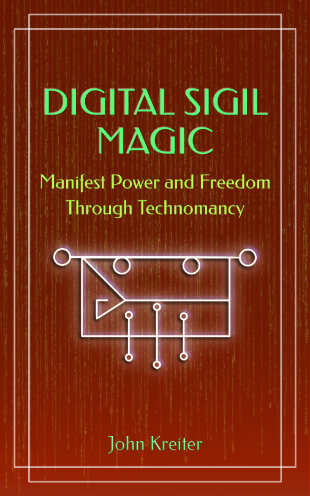

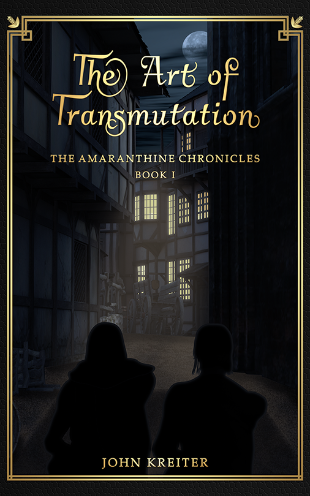
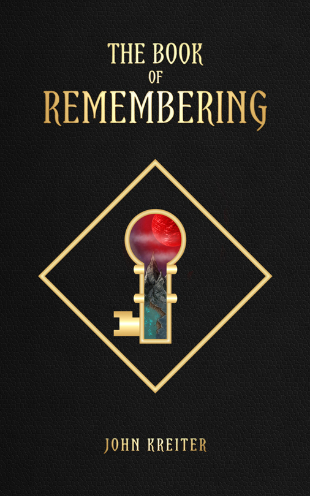
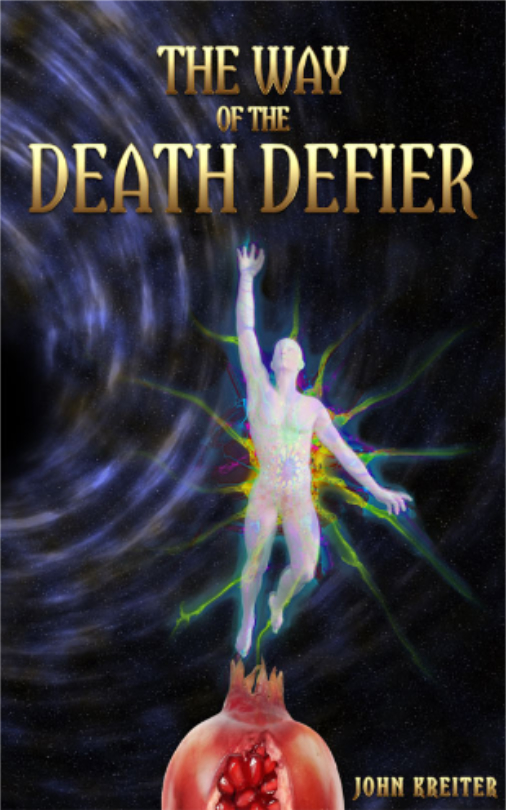

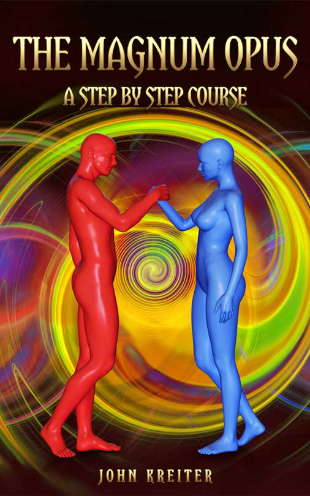

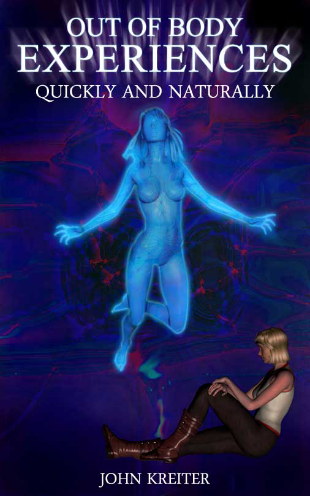
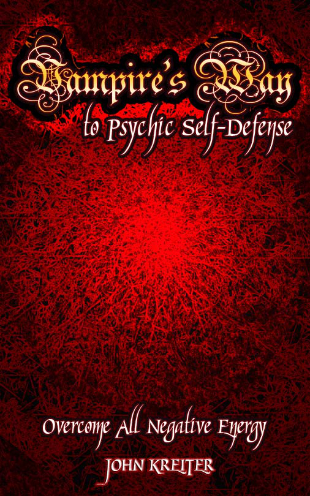
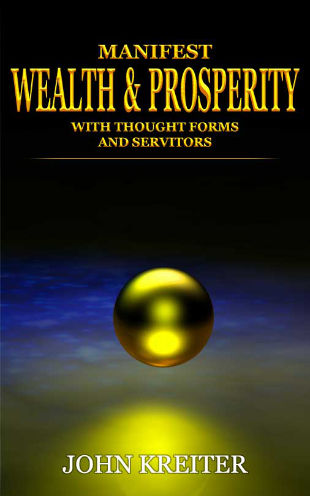

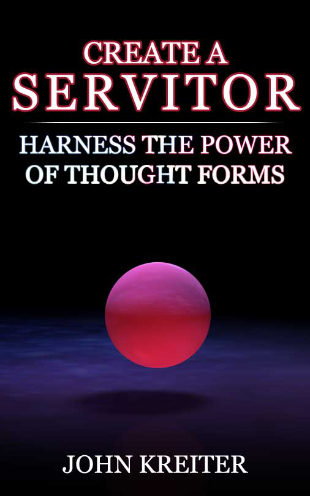
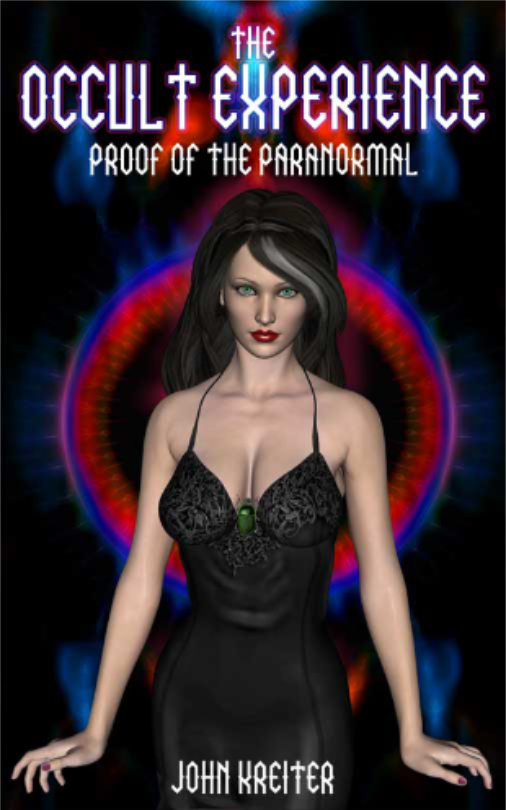

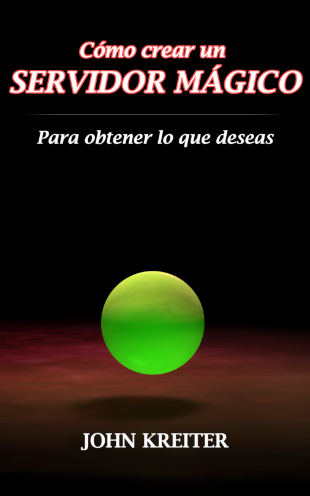
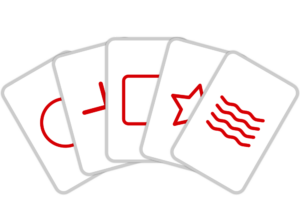

Leave a Reply